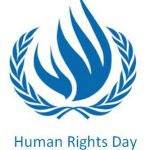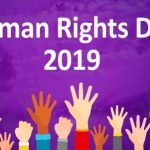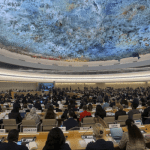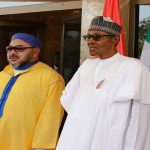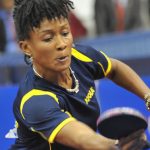Morocco has been elected to lead the United Nations Human Rights Council following a contentious battle with South Africa, which claimed Rabat’s human rights record rendered it ineligible to preside over the organization.
Ambassador Omar Zniber of Morocco earned 30 votes, while Ambassador Mxolisi Nkosi of South Africa received 17.
Prior to the voting, Nkosi stated that Morocco was the “antithesis of what the council stands for” and that the country’s election would jeopardize the body’s reputation.
Morocco, in turn, accused South Africa and some other African states of undermining its efforts to hold the position, a prestigious but mostly symbolic post.
The Moroccan foreign ministry stated, “The election of the Kingdom, backed by many nations worldwide despite Algeria’s and South Africa’s attempts to oppose it, demonstrates the trust and the credibility inspired by Morocco’s external actions.”
In the African group whose turn it was to lead the 47-member council, the vote represents an uncommon public disagreement.
The dispute in part revolves around Morocco’s sovereignty claim over Western Sahara, where the Algeria-backed Polisario Front is seeking independence.
Morocco has denied allegations of rights abuses against its opponents there.
As part of a broader strategy, Morocco has been courting countries, including African neighbours, to build support for its policies for the former Spanish territory.
It has failed to garner the support of South Africa, which helped organise an event to promote self-determination for the Sahrawi people in Geneva last year.
Rights groups say Morocco’s new role should prompt it to safeguard human rights at the highest level.
he U.N. Human Rights Council, which convenes several times a year, is the only intergovernmental global body designed to protect human rights worldwide.
It can increase scrutiny of countries’ human rights records and authorise probes.
Morocco has been elected to lead the United Nations Human Rights Council following a contentious battle with South Africa, which claimed Rabat’s human rights record rendered it ineligible to preside over the organization.
Ambassador Omar Zniber of Morocco earned 30 votes, while Ambassador Mxolisi Nkosi of South Africa received 17.
Prior to the voting, Nkosi stated that Morocco was the “antithesis of what the council stands for” and that the country’s election would jeopardize the body’s reputation.
Morocco, in turn, accused South Africa and some other African states of undermining its efforts to hold the position, a prestigious but mostly symbolic post.
The Moroccan foreign ministry stated, “The election of the Kingdom, backed by many nations worldwide despite Algeria’s and South Africa’s attempts to oppose it, demonstrates the trust and the credibility inspired by Morocco’s external actions.”
In the African group whose turn it was to lead the 47-member council, the vote represents an uncommon public disagreement.
The dispute in part revolves around Morocco’s sovereignty claim over Western Sahara, where the Algeria-backed Polisario Front is seeking independence.
Morocco has denied allegations of rights abuses against its opponents there.
As part of a broader strategy, Morocco has been courting countries, including African neighbours, to build support for its policies for the former Spanish territory.
It has failed to garner the support of South Africa, which helped organise an event to promote self-determination for the Sahrawi people in Geneva last year.
Rights groups say Morocco’s new role should prompt it to safeguard human rights at the highest level.
he U.N. Human Rights Council, which convenes several times a year, is the only intergovernmental global body designed to protect human rights worldwide.
It can increase scrutiny of countries’ human rights records and authorise probes.
Morocco has been elected to lead the United Nations Human Rights Council following a contentious battle with South Africa, which claimed Rabat’s human rights record rendered it ineligible to preside over the organization.
Ambassador Omar Zniber of Morocco earned 30 votes, while Ambassador Mxolisi Nkosi of South Africa received 17.
Prior to the voting, Nkosi stated that Morocco was the “antithesis of what the council stands for” and that the country’s election would jeopardize the body’s reputation.
Morocco, in turn, accused South Africa and some other African states of undermining its efforts to hold the position, a prestigious but mostly symbolic post.
The Moroccan foreign ministry stated, “The election of the Kingdom, backed by many nations worldwide despite Algeria’s and South Africa’s attempts to oppose it, demonstrates the trust and the credibility inspired by Morocco’s external actions.”
In the African group whose turn it was to lead the 47-member council, the vote represents an uncommon public disagreement.
The dispute in part revolves around Morocco’s sovereignty claim over Western Sahara, where the Algeria-backed Polisario Front is seeking independence.
Morocco has denied allegations of rights abuses against its opponents there.
As part of a broader strategy, Morocco has been courting countries, including African neighbours, to build support for its policies for the former Spanish territory.
It has failed to garner the support of South Africa, which helped organise an event to promote self-determination for the Sahrawi people in Geneva last year.
Rights groups say Morocco’s new role should prompt it to safeguard human rights at the highest level.
he U.N. Human Rights Council, which convenes several times a year, is the only intergovernmental global body designed to protect human rights worldwide.
It can increase scrutiny of countries’ human rights records and authorise probes.
Morocco has been elected to lead the United Nations Human Rights Council following a contentious battle with South Africa, which claimed Rabat’s human rights record rendered it ineligible to preside over the organization.
Ambassador Omar Zniber of Morocco earned 30 votes, while Ambassador Mxolisi Nkosi of South Africa received 17.
Prior to the voting, Nkosi stated that Morocco was the “antithesis of what the council stands for” and that the country’s election would jeopardize the body’s reputation.
Morocco, in turn, accused South Africa and some other African states of undermining its efforts to hold the position, a prestigious but mostly symbolic post.
The Moroccan foreign ministry stated, “The election of the Kingdom, backed by many nations worldwide despite Algeria’s and South Africa’s attempts to oppose it, demonstrates the trust and the credibility inspired by Morocco’s external actions.”
In the African group whose turn it was to lead the 47-member council, the vote represents an uncommon public disagreement.
The dispute in part revolves around Morocco’s sovereignty claim over Western Sahara, where the Algeria-backed Polisario Front is seeking independence.
Morocco has denied allegations of rights abuses against its opponents there.
As part of a broader strategy, Morocco has been courting countries, including African neighbours, to build support for its policies for the former Spanish territory.
It has failed to garner the support of South Africa, which helped organise an event to promote self-determination for the Sahrawi people in Geneva last year.
Rights groups say Morocco’s new role should prompt it to safeguard human rights at the highest level.
he U.N. Human Rights Council, which convenes several times a year, is the only intergovernmental global body designed to protect human rights worldwide.
It can increase scrutiny of countries’ human rights records and authorise probes.
Morocco has been elected to lead the United Nations Human Rights Council following a contentious battle with South Africa, which claimed Rabat’s human rights record rendered it ineligible to preside over the organization.
Ambassador Omar Zniber of Morocco earned 30 votes, while Ambassador Mxolisi Nkosi of South Africa received 17.
Prior to the voting, Nkosi stated that Morocco was the “antithesis of what the council stands for” and that the country’s election would jeopardize the body’s reputation.
Morocco, in turn, accused South Africa and some other African states of undermining its efforts to hold the position, a prestigious but mostly symbolic post.
The Moroccan foreign ministry stated, “The election of the Kingdom, backed by many nations worldwide despite Algeria’s and South Africa’s attempts to oppose it, demonstrates the trust and the credibility inspired by Morocco’s external actions.”
In the African group whose turn it was to lead the 47-member council, the vote represents an uncommon public disagreement.
The dispute in part revolves around Morocco’s sovereignty claim over Western Sahara, where the Algeria-backed Polisario Front is seeking independence.
Morocco has denied allegations of rights abuses against its opponents there.
As part of a broader strategy, Morocco has been courting countries, including African neighbours, to build support for its policies for the former Spanish territory.
It has failed to garner the support of South Africa, which helped organise an event to promote self-determination for the Sahrawi people in Geneva last year.
Rights groups say Morocco’s new role should prompt it to safeguard human rights at the highest level.
he U.N. Human Rights Council, which convenes several times a year, is the only intergovernmental global body designed to protect human rights worldwide.
It can increase scrutiny of countries’ human rights records and authorise probes.
Morocco has been elected to lead the United Nations Human Rights Council following a contentious battle with South Africa, which claimed Rabat’s human rights record rendered it ineligible to preside over the organization.
Ambassador Omar Zniber of Morocco earned 30 votes, while Ambassador Mxolisi Nkosi of South Africa received 17.
Prior to the voting, Nkosi stated that Morocco was the “antithesis of what the council stands for” and that the country’s election would jeopardize the body’s reputation.
Morocco, in turn, accused South Africa and some other African states of undermining its efforts to hold the position, a prestigious but mostly symbolic post.
The Moroccan foreign ministry stated, “The election of the Kingdom, backed by many nations worldwide despite Algeria’s and South Africa’s attempts to oppose it, demonstrates the trust and the credibility inspired by Morocco’s external actions.”
In the African group whose turn it was to lead the 47-member council, the vote represents an uncommon public disagreement.
The dispute in part revolves around Morocco’s sovereignty claim over Western Sahara, where the Algeria-backed Polisario Front is seeking independence.
Morocco has denied allegations of rights abuses against its opponents there.
As part of a broader strategy, Morocco has been courting countries, including African neighbours, to build support for its policies for the former Spanish territory.
It has failed to garner the support of South Africa, which helped organise an event to promote self-determination for the Sahrawi people in Geneva last year.
Rights groups say Morocco’s new role should prompt it to safeguard human rights at the highest level.
he U.N. Human Rights Council, which convenes several times a year, is the only intergovernmental global body designed to protect human rights worldwide.
It can increase scrutiny of countries’ human rights records and authorise probes.
Morocco has been elected to lead the United Nations Human Rights Council following a contentious battle with South Africa, which claimed Rabat’s human rights record rendered it ineligible to preside over the organization.
Ambassador Omar Zniber of Morocco earned 30 votes, while Ambassador Mxolisi Nkosi of South Africa received 17.
Prior to the voting, Nkosi stated that Morocco was the “antithesis of what the council stands for” and that the country’s election would jeopardize the body’s reputation.
Morocco, in turn, accused South Africa and some other African states of undermining its efforts to hold the position, a prestigious but mostly symbolic post.
The Moroccan foreign ministry stated, “The election of the Kingdom, backed by many nations worldwide despite Algeria’s and South Africa’s attempts to oppose it, demonstrates the trust and the credibility inspired by Morocco’s external actions.”
In the African group whose turn it was to lead the 47-member council, the vote represents an uncommon public disagreement.
The dispute in part revolves around Morocco’s sovereignty claim over Western Sahara, where the Algeria-backed Polisario Front is seeking independence.
Morocco has denied allegations of rights abuses against its opponents there.
As part of a broader strategy, Morocco has been courting countries, including African neighbours, to build support for its policies for the former Spanish territory.
It has failed to garner the support of South Africa, which helped organise an event to promote self-determination for the Sahrawi people in Geneva last year.
Rights groups say Morocco’s new role should prompt it to safeguard human rights at the highest level.
he U.N. Human Rights Council, which convenes several times a year, is the only intergovernmental global body designed to protect human rights worldwide.
It can increase scrutiny of countries’ human rights records and authorise probes.
Morocco has been elected to lead the United Nations Human Rights Council following a contentious battle with South Africa, which claimed Rabat’s human rights record rendered it ineligible to preside over the organization.
Ambassador Omar Zniber of Morocco earned 30 votes, while Ambassador Mxolisi Nkosi of South Africa received 17.
Prior to the voting, Nkosi stated that Morocco was the “antithesis of what the council stands for” and that the country’s election would jeopardize the body’s reputation.
Morocco, in turn, accused South Africa and some other African states of undermining its efforts to hold the position, a prestigious but mostly symbolic post.
The Moroccan foreign ministry stated, “The election of the Kingdom, backed by many nations worldwide despite Algeria’s and South Africa’s attempts to oppose it, demonstrates the trust and the credibility inspired by Morocco’s external actions.”
In the African group whose turn it was to lead the 47-member council, the vote represents an uncommon public disagreement.
The dispute in part revolves around Morocco’s sovereignty claim over Western Sahara, where the Algeria-backed Polisario Front is seeking independence.
Morocco has denied allegations of rights abuses against its opponents there.
As part of a broader strategy, Morocco has been courting countries, including African neighbours, to build support for its policies for the former Spanish territory.
It has failed to garner the support of South Africa, which helped organise an event to promote self-determination for the Sahrawi people in Geneva last year.
Rights groups say Morocco’s new role should prompt it to safeguard human rights at the highest level.
he U.N. Human Rights Council, which convenes several times a year, is the only intergovernmental global body designed to protect human rights worldwide.
It can increase scrutiny of countries’ human rights records and authorise probes.



